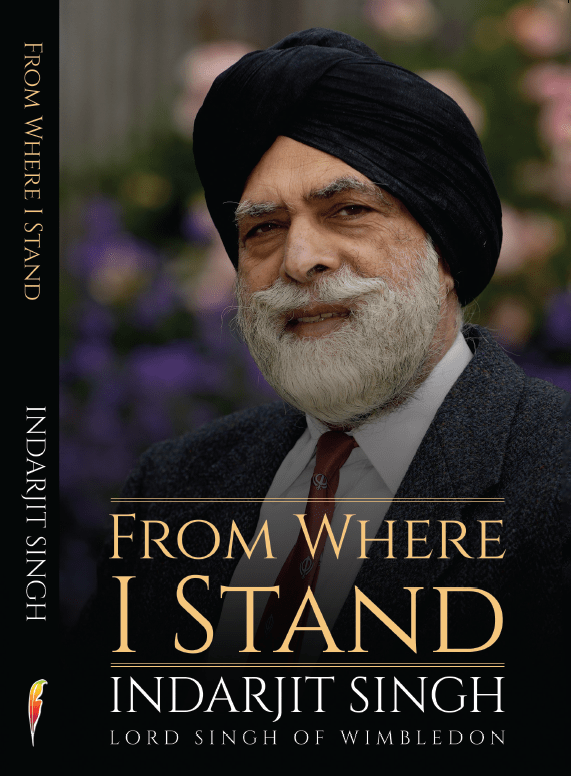
Indarjit Singh, or Lord Singh of Wimbledon is widely recognised as the de-facto leader of Britain’s Sikh community. When being introduced by the British Ambassador to Estonia, he was referred to as ‘the man who brought Guru Nanak to the Breakfast tables of Britain’, for his inspiring broadcasts on BBC Radio 4. But what’s the story behind Singh’s journey towards faith leadership? From Where I Stand reveals how his newly qualified father, Dr Diwan Singh, rallied against British rule in India, by bandaging up Sikh protestors pledged to non-violence, being beaten by police. It was, a selfless and courageous act, which led to the family’s eventual exile from Punjab to Britain. After gaining further medical qualifications Diwan Singh set up as a general practitioner overcoming prejudice of a pre-war Britain. His dynamism led him to become president of one of Britain’s first Sikh temples in Shepherds Bush, London, as well as a leading figure in the movement for India’s freedom from British Imperialism. He was popular amongst Hindu, Sikhs and Muslims – the Singh family had distinguished guests meet them at home, not least Krishna Menon who became India’s first High Commissioner to the UK after independence in 1947; and Udham Singh who later famously took revenge for the Jallianwala Bagh massacre.
Indarjit, one of 4 siblings (along with his elder brothers Gurbachan, Surinder and younger brother Jagjit), was destined to follow in his father’s footsteps of leadership. As a child growing up in wartime Britain, Indarjit was rebellious from the start. On his first day at school, he chose to avoid walking up the stairs, choosing to climb up a sandy adjacent slope – to the chagrin of his teacher and parents. During VE celebrations he went to the green grocer’s shop owned by a Mr V Pendry (a name he later used as an alias for his writing criticising the actions of the then Indian government). Referring to a 13-year-old Indarjit, the shopkeeper said, ‘you lot must be Germans because you’re not celebrating’, to which Indarjit responded in his best German accent ‘Ja’, eliciting raucous laughter amongst customers in the shop. This early sense of humour became a characteristic trait.
From Where I Stand is punctuated with seminal moments, like the time he met Kanwaljit (Lady Singh of Wimbledon) visited the pyramids of Egypt on camelback whilst on honeymoon, and the birth of the couple’s daughters. It follows his distinguished career in the mining industry. He then worked for the contractor Costain whilst also studying for an MBA. He then moved to the ‘people’s republic’ of Hackney as a management consultant. The book reveals Singh’s politics were neither left nor right, despite Bernard Weatherill MP (who later become Speaker of the House of Commons), trying to persuade him to join the Conservative party, and regardless of working as a civil servant in a far-left leaning council. During the passage of his career, Indarjit found that he was increasingly writing about religion and politics, and increasingly in the public eye, appearing on mainstream television. One TV programme called From Where I Stand was about his challenges and priorities as a Sikh in the 1980s.
It was events in India in 1984 which led Singh to take early retirement, something he was able to do because of some shrewd investments. He later set up the Network of Sikh Organisations in 1987, a leading Sikh charity for which he remains the director – and one which works for the betterment of British Sikhs. Indarjit became a leading voice of protest against the anti-Sikh genocide, which started with the military assault on Sikhism’s holiest shrine – the Golden Temple by the Indian Army in 1984.
When writing in India about earlier discrimination against Sikhs, he used the alias ‘Victor Pendry’ (his wife Kanwaljit had heard of Mr Pendry, before she met Indarjit). Now, in 1984 in the UK, writing in his own name, he challenged the then Indira Gandhi government with articles like one in the Guardian on India’s atrocities against Sikhs titled: ‘Gandhi Speak that cloaks the murderous truth’. Singh set up the Sikh Messenger promoting interfaith understanding and remains the editor today.
He has been widely celebrated for his contribution to British society and became a household name for his contributions to BBC Radio Thought for the Day. He has advised former Prime Minister’s like Gordon Brown and Tony Blair and helped set up the Lambeth Group of Faith Leaders to advise on ‘Values for the New Millennium’. A couple of years after receipt of a Broadcasting Gold Medallion, he was awarded the UK Templeton Prize for Promoting Religious Understanding – the only Sikh to have received this honour. He is one of the co-founders of the Interfaith Network for the UK and nominated as the ‘people’s peer’ in a poll of Radio 4 listeners (second only to Bob Geldof) and made a life peer in 2011.
From Where I Stand includes a selection of TFTD’s transcripts – a sentence from one perfectly sums up the core motivation of crossbench peer Lord Singh of Wimbledon – ‘…as a Sikh, I believe our own sense of wellbeing is directly proportional to the amount of our life we devote to helping those around us.’
From Where I Stand is uplifting and inspiring, and a good read for anyone interested in better understanding our fellow human beings and promoting a cohesive society.
The book can be ordered via here or via Amazon.
To order a review copy or organise an interview please reply to: info@nsouk.co.uk

